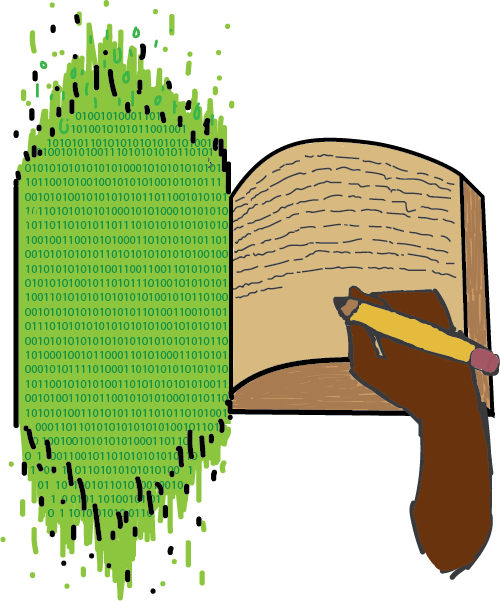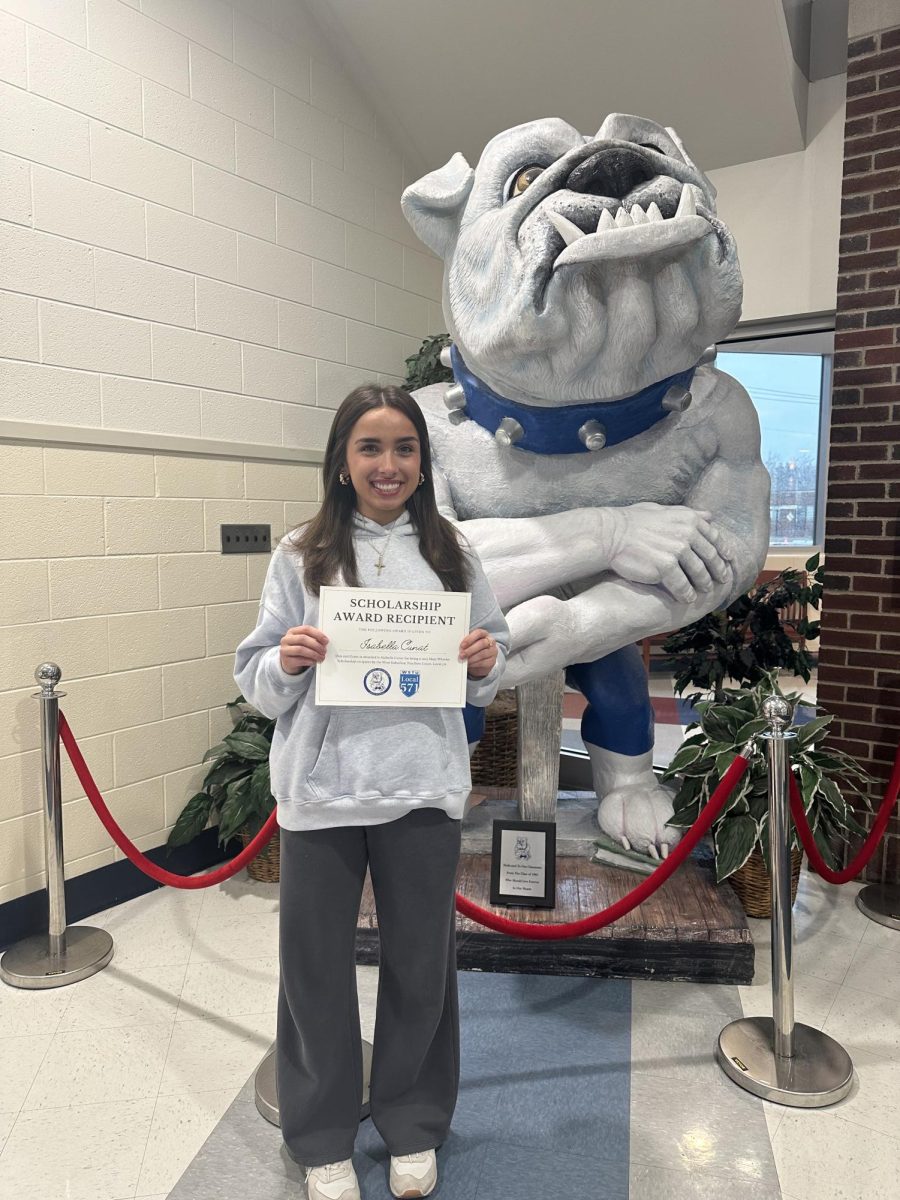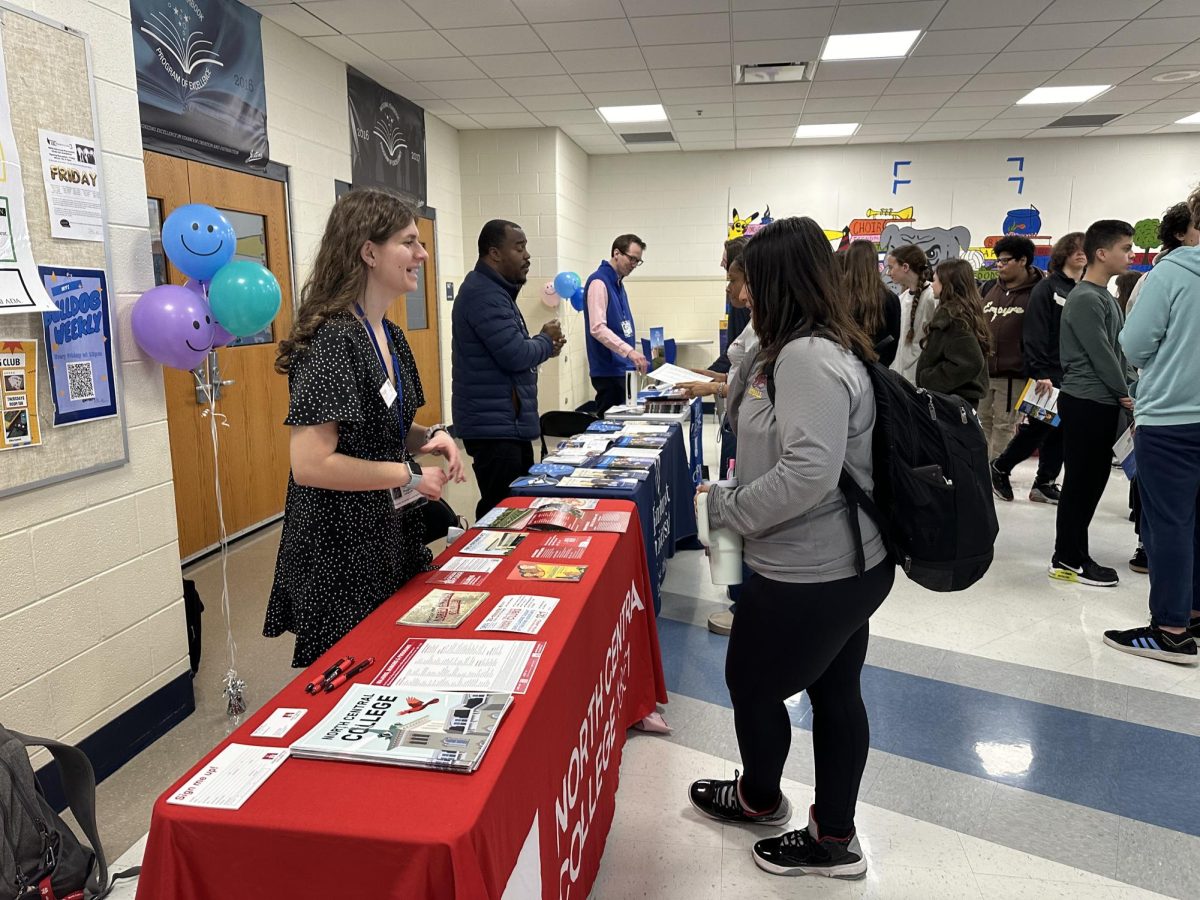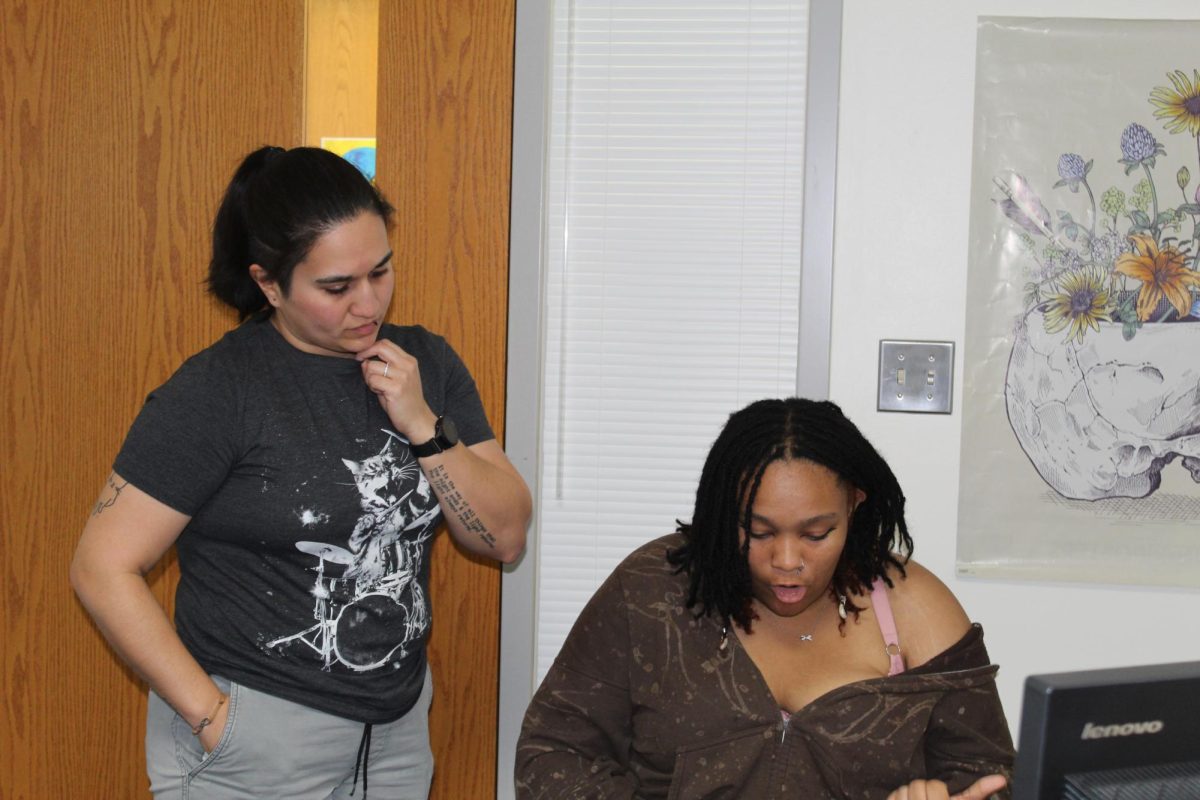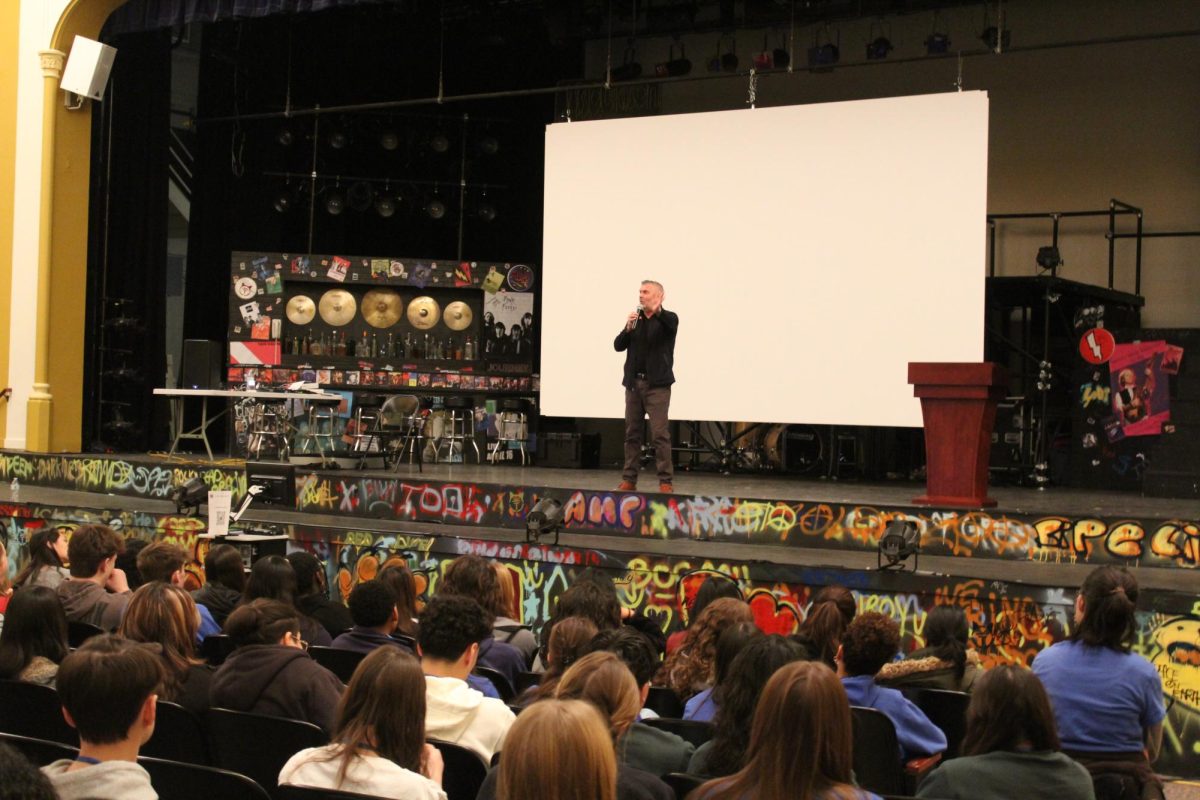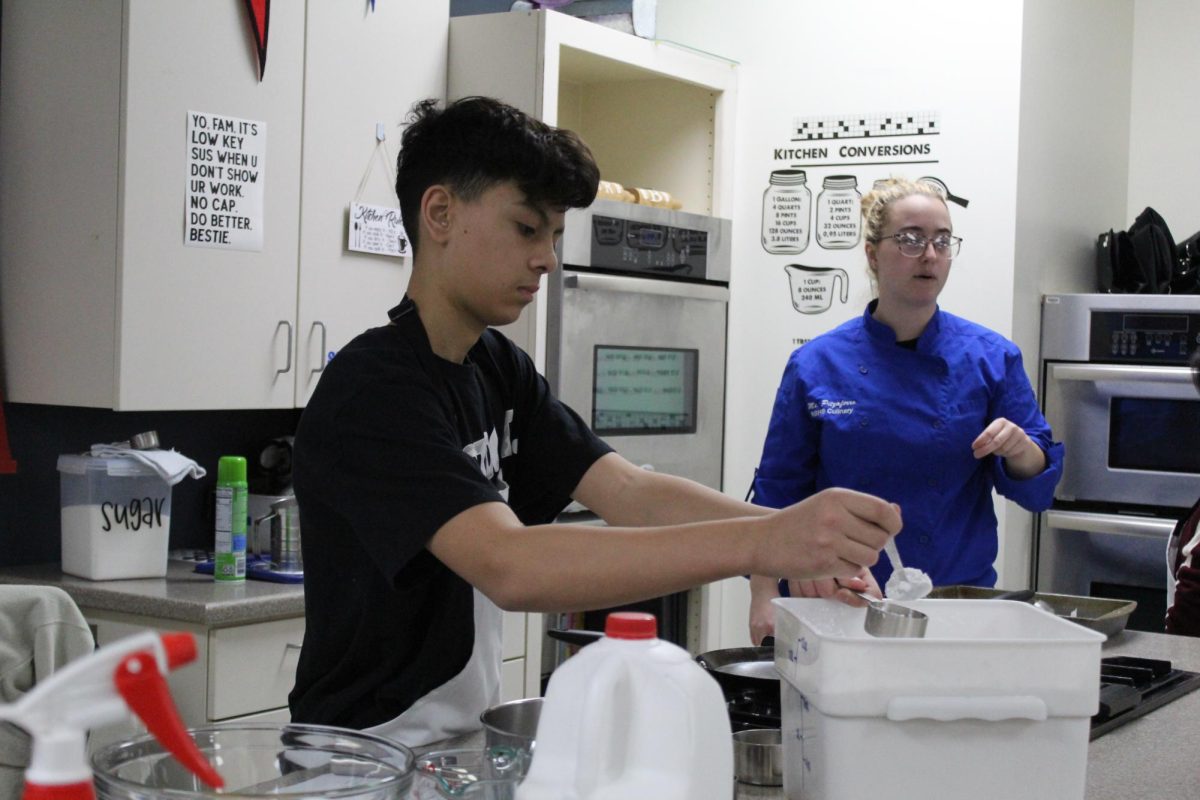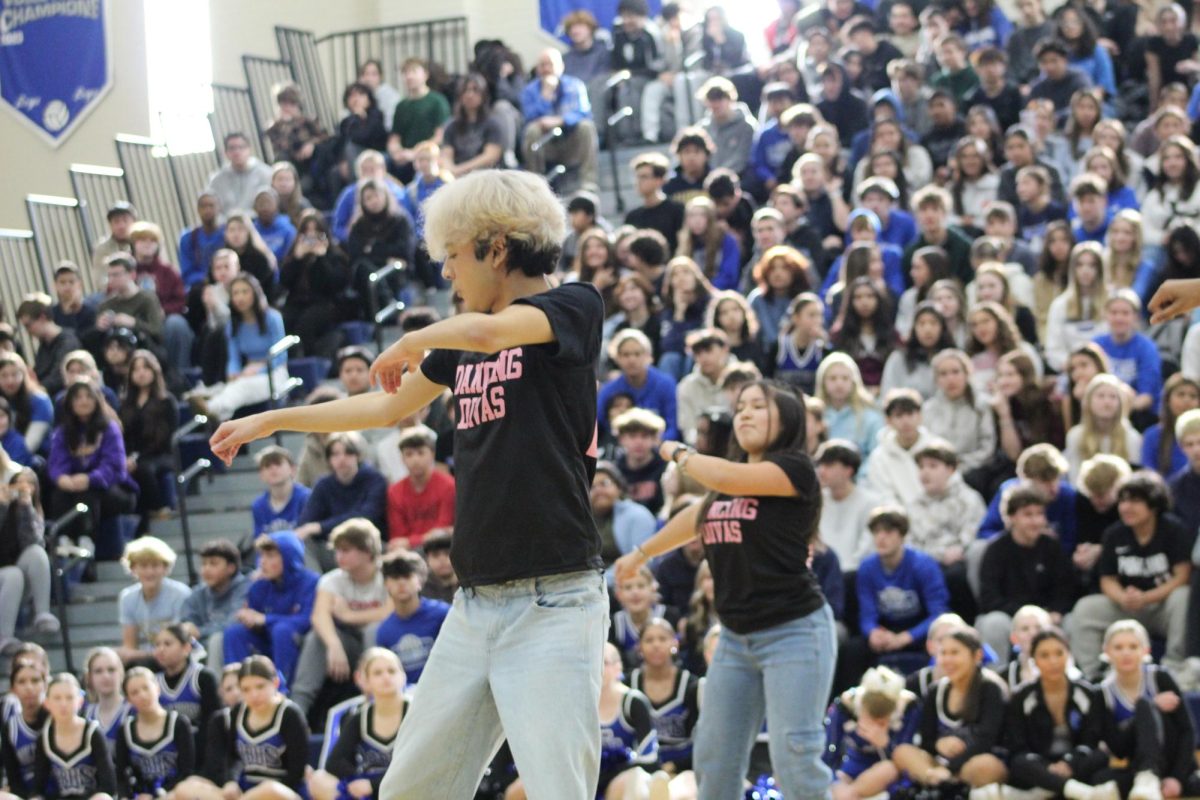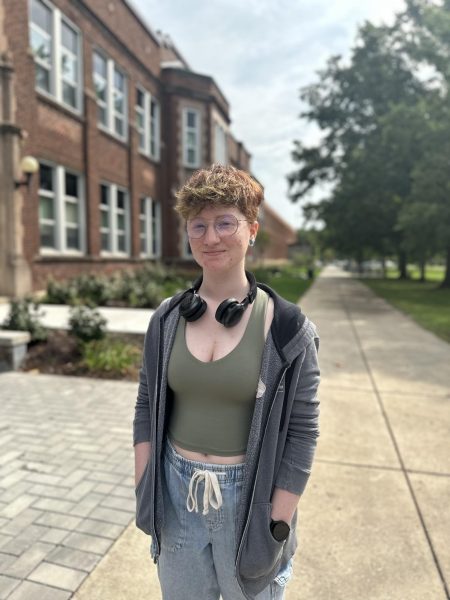ChatGPT has quickly become one of the most widespread and readily available technological advancements. The accessible nature of this Artificial Intelligence, or AI, has caused concern over how it will impact academic integrity within schools, while also being a useful tool for students and teachers alike.
“Quite frankly last school year it all sort of, I want to say, blew up when chatGPT kind of hit the world by storm,” Math teacher Sandy Czajka said.
Originally, AI platforms caused some unease for educators. The evident threat of academic dishonesty has caused hesitancy to embrace AI technology within the classroom.
“My initial reaction was a little bit of panic. And I think that’s kind of been a common educational response to the very initial arrival of a tool like this,” Assistant Principal of Curriculum and Instruction Kylie Lindquist said. “I think that the way that you approach a tool like this as an educational institution and, as a teacher in that educational institution, that’s what determines how students will use it.”
The question of how to realistically integrate AI systemically in schools, including RB, has not been answered.
“I still think we are on the very front end of figuring out with teachers, how do we use this for good?” Lindquist said.
Educators are on the precipice of finding a balance between utilizing this technology within their classrooms to enhance productivity, while not letting it stunt students’ growth.
“I kind of think of AI as the calculator for everything. It’s not just for math class. It’s going to affect everything,” Czajka said. “It is an amazing tool. But it should not replace learning. Right? Because the reality is, if all you can do is put in a prompt and get answers out, is that gonna help you understand what’s going on?”
Teaching students to know the appropriate times to use AI is a concept that Czajka is planning to integrate into her lessons.
“You can’t create something new if you don’t understand what’s been given to you in the first place,” Czajka said. “It’s kind of helping to re-mold education in some ways.”
Math teacher Dan Bonarigo has begun to adjust his classroom assignments in order to mediate how his students are receiving their information.
“If we assign the same things that we’ve been assigning all along, and we don’t kind of control the environment, then we’re not likely, you know, we’re not as likely to see the skills that students have,” Bonarigo said.
Methods used to gauge students’ understanding has not only been altered within the classroom, but also in AP testing. Czajka holds one of ten positions on the “AP Educator AI Committee”. In monthly meetings, the committee discusses how AI is impacting education. One of their duties is to update AP exams.
“Certain subjects have a part of the exam that is a project and completed before the exam dates. We know students have access to genAI and want to be sure the students’ work that is being evaluated as part of the exam grade actually demonstrates student learning,” Czajka said.
Along with updating exam material, they also collaborate to figure out ways to teach the ethical use of AI to students. Teaching students the ethical advantages that AI can provide while also allowing students to develop and demonstrate mastery of the content in a given course is a main point of discussion.
“As far as my duties, before the first meeting we had to submit ideas for teaching about using AI to share with each other,” Czajka said. “We must be prepared to discuss these options as well as debate different ideas.”
The committee collaborates to make the best, well-educated decisions on AI in AP education. AI technology is still in its infancy, developing constantly, so changes are being made to keep up.
“It can help make us more efficient learners, and more efficient, productive citizens and society,” Bonarigo said. “I think that AI is kind of that next big thing that’s really going to kind of alter how we do things, and it’s going to change. It’s going to change people’s jobs. It’s going to change people’s lives.“

